Film Inquiry Recommends: Ten Music Biopics That Are Actually Great
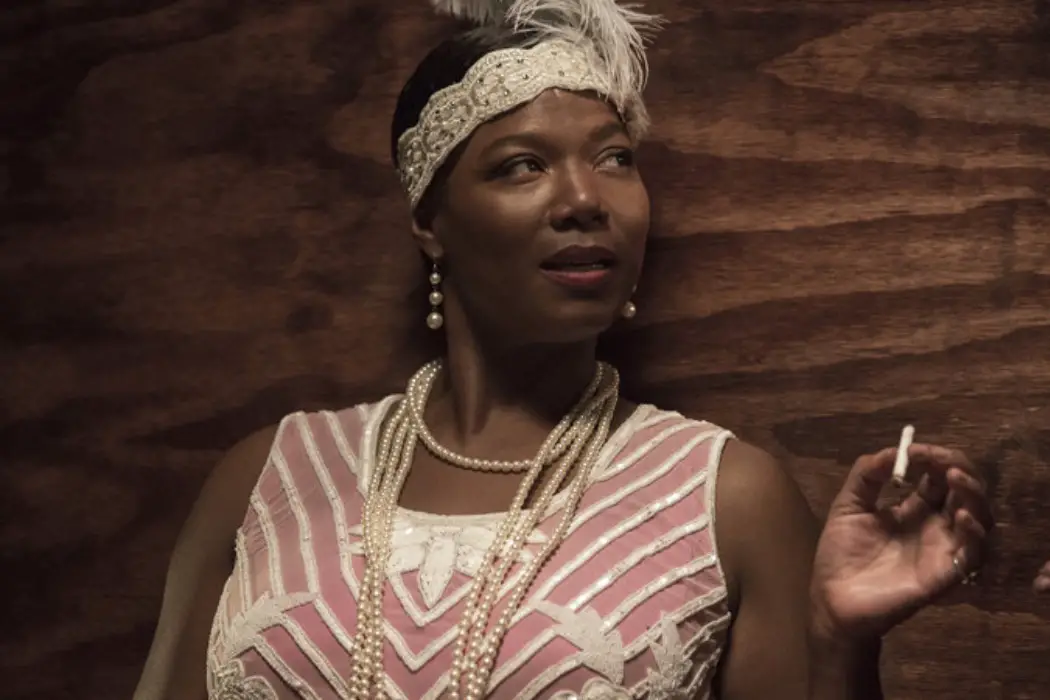
The music biopic is, for the most part, a stale genre comprised of Oscar bait profiting off of the tragedies in a musician’s life and fan service movies featuring an actor doing an impression of a famous musician for empty accolades. The problem is mostly structural. In trying to fit an entire life into the length of a Hollywood feature, the majority of biopics feel virtually identical, so much so that one of the more scathing parody films ever made, Walk Hard: The Dewey Cox Story, is entirely based around mocking the various clichés.
But there are a handful of films in the genre that try something new, in terms of aesthetics, structure, or acting, and with Rocketman recently released, I thought I would pay tribute. Here are ten music biopics that broke the mold.
10. Bessie (2015, Dee Rees)
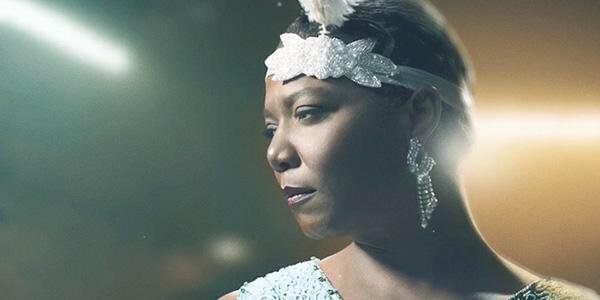
Following the indie success of her 2011 film Pariah, Dee Rees tackled the life of blues legend Bessie Smith in this HBO biopic. The film’s structure is mostly conventional, but thanks to Queen Latifah’s performance as Smith, Rees‘ indulgence in the production values granted by the budget, and the depiction of Smith’s bisexuality, it surpass most contemporaries. Rees’ next film, 2017’s Mudbound, would be even more ambitious in its portrayal of early 20th century Black life in the American South, as well as in its period mise-en-scène.
9. Sid & Nancy (1986, Alex Cox)
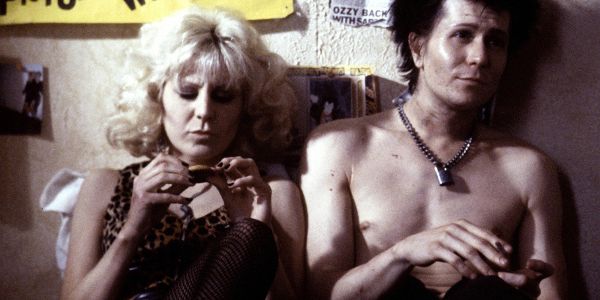
There have been a handful of worthwhile Sex Pistols films, from The Great Rock ‘n’ Roll Swindle in 1980 to the extensive documentary The Filth and the Fury in 2000 (both directed by Julien Temple). But Alex Cox’s Sid and Nancy, about Pistols bassist Sid Vicious (Gary Oldman) and his girlfriend Nancy Spungen (Chloe Webb), is the best of them, unflinching in showing the heroin-addicted pair’s path of self-destruction that led to their deaths. The leads’ performances sell the tragedy all the way to the biting final fifteen minutes. But before that, the film also taps into the energy and power of the punk scene, highlighted by a recreation of Vicious’ iconic “My Way” performance that tops the original.
8. The Hours and Times (1991, Christopher Munch)
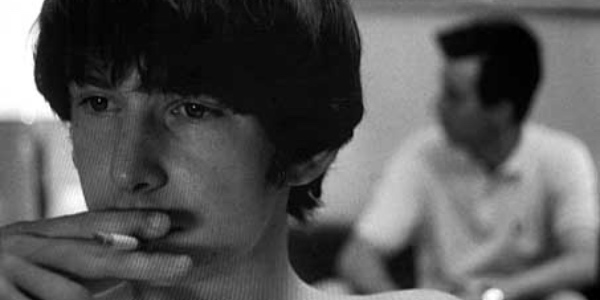
It’s tempting to discount this one — after all, it’s fictional speculation about what happened between John Lennon and the Beatles’ manager Brian Epstein during their 1963 vacation in Barcelona. Fan fiction meets auteur cinema, essentially. But other than Richard Lester’s A Hard Day’s Night, no film about the Beatles has been this original or daring, and the chemistry between actors David Angus (as Epstein) and Ian Hart (as Lennon) help make this one of the more under-appreciated queer films of the 1990s. It recently began streaming on the Criterion Channel.
7. Miles Ahead (2015, Don Cheadle)
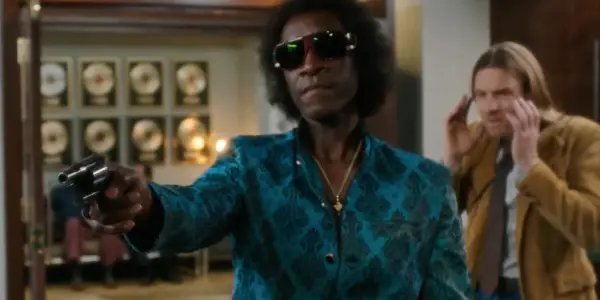
As a vehicle for information, the biographical film couldn’t be more useless. The average film in the genre either embellishes the truth or tries to pack as many details as possible into two hours until it doesn’t work as either biography or art. With his Miles Davis biopic Miles Ahead, Don Cheadle finds a work-around: he just lies. The story, about Davis’ attempts to recover stolen recordings with the help of fictional Rolling Stone journalist Dave Braden (Ewan McGregor), is made up. Moreover, it’s irrelevant, with the director-star using the liberation of fiction to create a dynamic film with jazz-like structure and exuberance that says more about Davis as a celebrity, a myth, an artist, than it says about his actual life. Cheadle’s direction is lively and unique, so let’s hope the somewhat mixed reception doesn’t prevent him from making another.
6. Topsy-Turvy (1999, Mike Leigh)
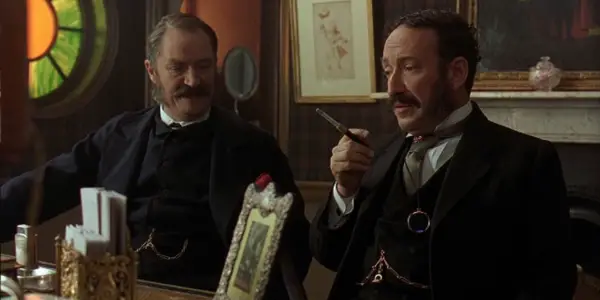
Mike Leigh’s film about the creation of Gilbert and Sullivan’s The Mikado is something special. Bolstered by performances from Allan Corduner (as Arthur Sullivan), Jim Broadbent (as W. S. Gilbert), and Timothy Spall (as opera singer Richard Temple), Topsy-Turvy is theatrical and delightful, but more than that, it’s thoughtful, ending on a poignant note about creativity. One of the funniest (and most detailed) cinematic portrayals of building art from the ground up.
5. Last Days (2005, Gus Van Sant)
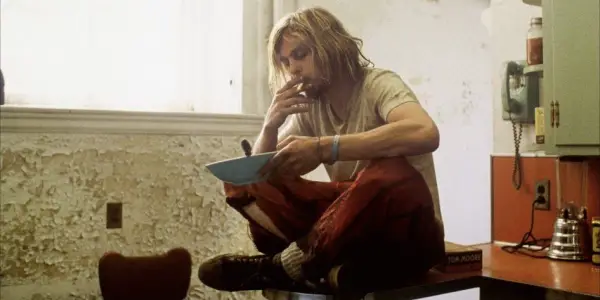
The third (and best) part of Gus Van Sant’s Death Trilogy — after the Sátántangó-influenced Gerry and the school shooting portrait Elephant — focuses on the death of of a Kurt Cobain-like figure named Blake (Michael Pitt), and though Last Days doesn’t use Cobain’s name, the spirit of the Nirvana frontman can be felt throughout the film, especially in Pitt’s performance. The song “Death to Birth,” in particular, sounds like it could have been recorded by the man himself. Far from being a one-man show, however, Last Days also features supporting roles from Lukas Haas, Harmony Korine, and Kim Gordon, among others, showing that even as Blake struggles to escape his own demons, the world outside of him keeps spinning.
4. Bird (1988, Clint Eastwood)

Clint Eastwood knows how to direct a biopic. Even his more basic 2014 adaptation of the jukebox musical Jersey Boys shows unique vision. Still, his true gift to the biopic genre is this 1988 film about jazz saxophonist Charlie Parker (Forest Whitaker) which, like Miles Ahead 17 years later, features the structure and tone of a jazz performance, skipping around Parker’s life with the freedom and control of a bebop recording. But while Bird is never visually dull, Eastwood often steps aside here, simply using the camera as a tool to let Whitaker do his thing. Smart choice — Whittaker would win Best Actor at the 1988 Cannes Film Festival.
3. Love & Mercy (2014, Bill Pohlad)

This biopic about the Beach Boys’ Brian Wilson is essentially two films combined — one starring Paul Dano and showing Wilson’s creative peak in the 1960s, the other starring John Cusack and showing Wilson’s mistreatment at the hands of Dr. Eugene Landy (Paul Giamatti) and his relationship with Melinda Ledbetter (Elizabeth Banks) in the 1980s. The Dano section is impressively intricate in portraying Wilson’s creative process during the recording of Pet Sounds and the long-unfinished Smile, but I prefer the Cusack half, which features a painful and realistic depiction of mental illness and patient abuse.
2. Amadeus (1984, Miloš Forman)
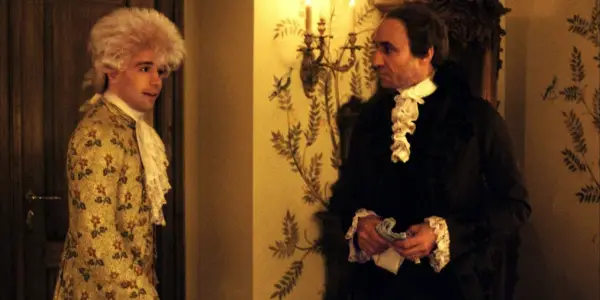
A film about rivalry, madness, ambition, and of course music, Miloš Forman’s critically acclaimed film about the power struggle between Antonio Salieri (F. Murray Abraham) and Wolfgang Amadeus Mozart (Tom Hulce) is a rare Best Picture winner that lives up to the hype. Adapted by Peter Shaffer from his own play, Amadeus feels alive in a way the average costume drama does not, heightened by Hulce’s hilarious performance. An 18-year-old Cynthia Nixon also shows up.
1. Superstar: The Karen Carpenter Story (1988, Todd Haynes)
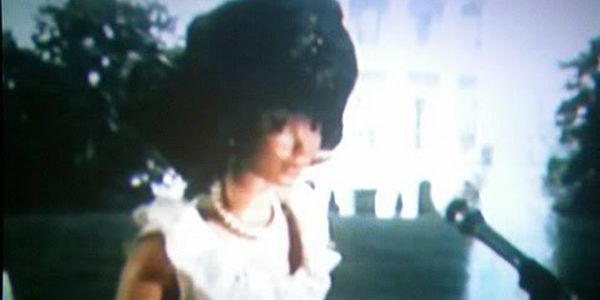
Todd Haynes’ experimental short is the greatest exploration of eating disorders ever put on film. The first time I saw it, I began tearing up as soon as the titular song began playing over the fuzzy opening credits. Having Barbie dolls play the characters was a brilliant choice, using a universal symbol of an unrealistic body type to show Karen Carpenter’s struggles with anorexia that eventually killed her.
But even more brilliant is the way Haynes gets the voice actors to evoke an emotional response, making every moment feel incredibly real even though the people on screen are literally dolls. The film is radically empathetic, but Karen’s brother and bandmate Richard Carpenter didn’t feel that way, and a lawsuit from him means that Superstar only exists today in bootlegs. But this means you can view all of its 43 minutes on YouTube, and it’s well worth it, low quality and all. The finest and most artful music biopic ever made.
What biopics aren’t here that should be? Let us know in the comments below!
Does content like this matter to you?
Become a Member and support film journalism. Unlock access to all of Film Inquiry`s great articles. Join a community of like-minded readers who are passionate about cinema - get access to our private members Network, give back to independent filmmakers, and more.












